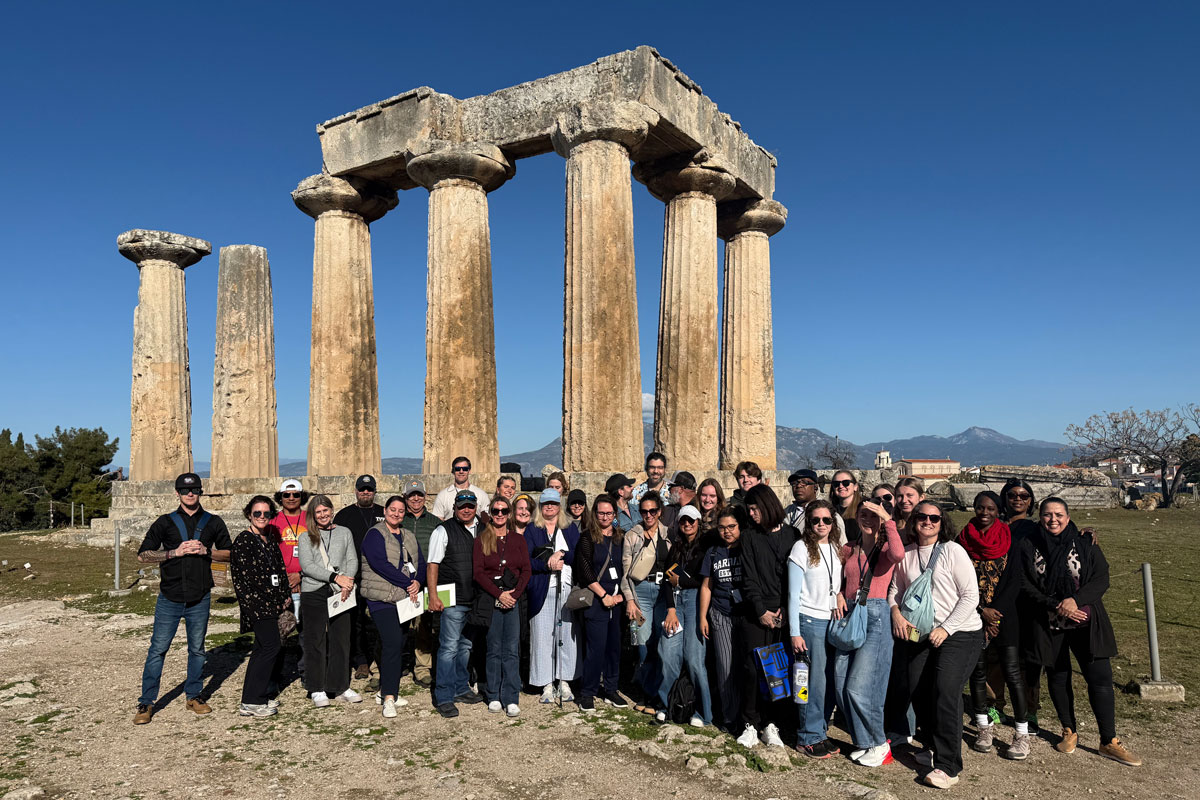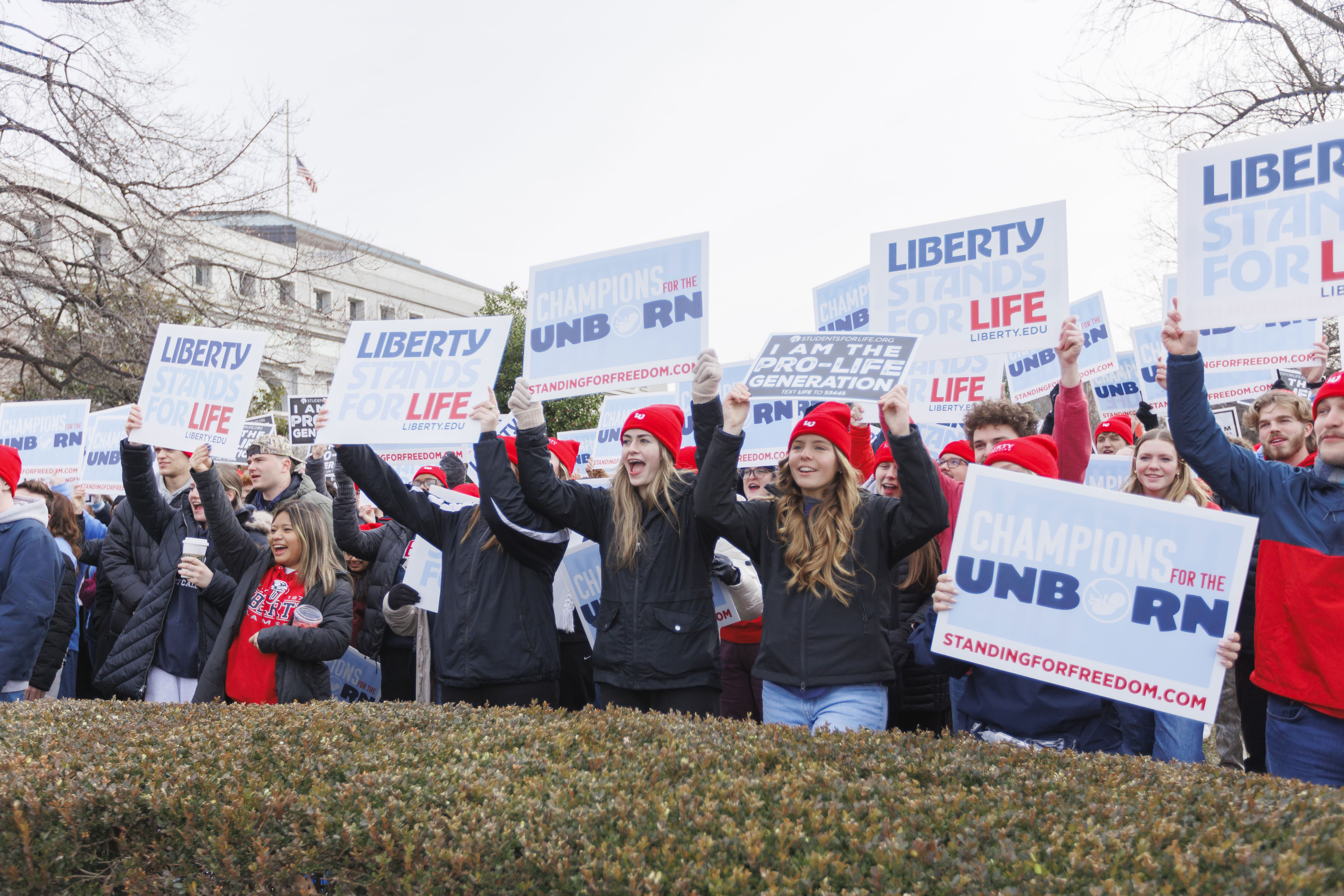U.S. Deputy Secretary of Labor shares workforce insights, praises Liberty University as a model for real-world training
August 19, 2025 : By Logan Smith - Office of Communications & Public Engagement
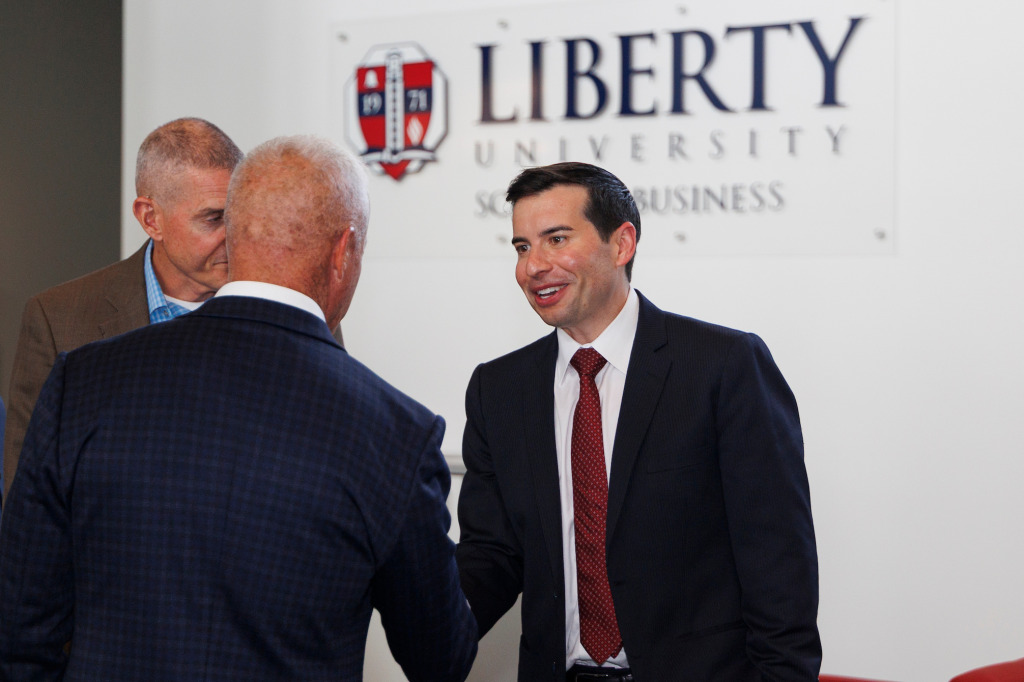
Liberty University academic leaders, including deans, department chairs, and professors, gathered Monday, Aug. 11, in the School of Business Towns Auditorium to engage with U.S. Deputy Secretary of Labor Keith Sonderling, who shared insights on the state of the national labor force, the Department of Labor’s efforts to reduce unemployment month-to-month, and strategies for leaders in higher education to equip students for successful, fulfilling careers.
The session was made possible by Liberty’s Office of Business Relations, which also coordinates the university’s annual CEO Summit, a large-scale event held each fall that hosts high-profile business leaders from around the world to share ideas, network, and collaborate with students and professors.
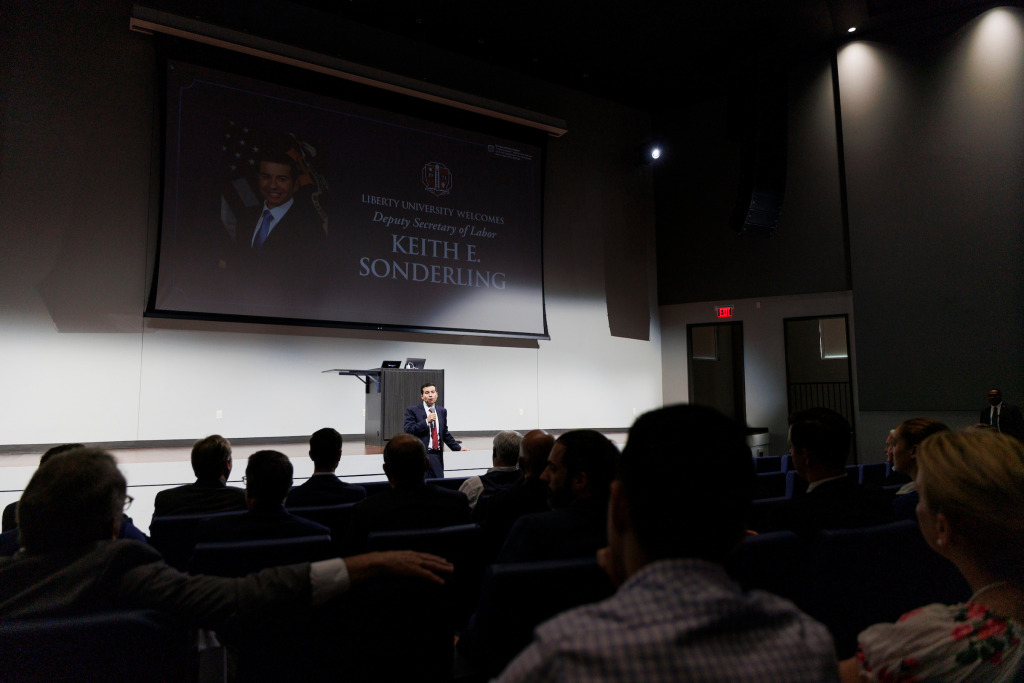
Sonderling formerly served in the Department of Labor’s Wage and Hour Division (2017-20) and as the Commissioner of the U.S. Equal Employment Opportunity Commission (2020-24). He was confirmed by the U.S. Senate in March as the second-highest ranking official at the Department of Labor.
Part of the executive branch, the Department of Labor is committed to enforcing labor laws, improving working conditions, and advancing opportunities for fruitful employment across America. As deputy secretary, Sonderling serves as the department’s chief operating officer, managing its budget, employees, and ensuring that America maintains and expands a healthy labor force.
“For years, the Department of Labor and the Department of Education have given out billions and billions of dollars to state workforce agencies and educational institutions, and we haven’t seen the results that we want, which is a skilled workforce,” Sonderling told Liberty’s leadership, noting that some of the funding streams will be shifted from the Department of Education to the Department of Labor. “When we give out your hard-earned taxpayer dollars, there should be a return on investment. And what we’re seeing is that a lot of the programs we were giving money to, we aren’t getting that return on investment.”
Sonderling encouraged the leaders to train students to become “AI literate” due to the rapidly evolving national job market that relies on artificial intelligence and automation.
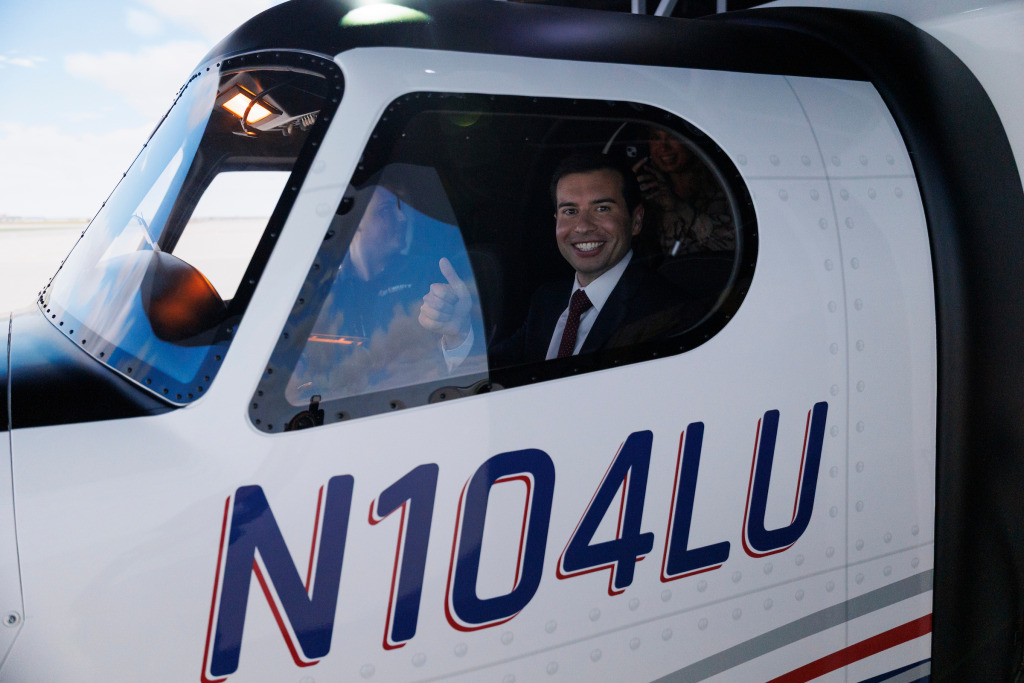
“ChatGPT is not going to replace somebody building a building, but it can help them make it more efficient,” he said. “It can help you take a picture of the jobsite, and before you walk in there, it can tell you where all the dangerous hazards are, and it can help you use the right tools efficiently. It’s going to impact everyone.”
Sonderling said professors and university leadership have an important role in “breaking the silos” between academia, business, and government, as they equip students with the skills essential for obtaining the hands-on, technical jobs of the future.
“(As academic leaders) you are part of that silo that needs to be broken,” he said. “You are part of those conversations that we need to have.”
Following his presentation, Sonderling toured campus, visiting the School of Aeronautics and School of Law with each respective dean, to see firsthand the university’s dedication to modern industry trends, innovative use of artificial intelligence, and state-of-the-art career preparation programs. At the School of Aeronautics, Sonderling tested the AI SIM advanced jet simulator used to train students in real-world flight scenarios. He also visited the School of Law’s Supreme Courtroom, an exact size-to-scale replica of its namesake.
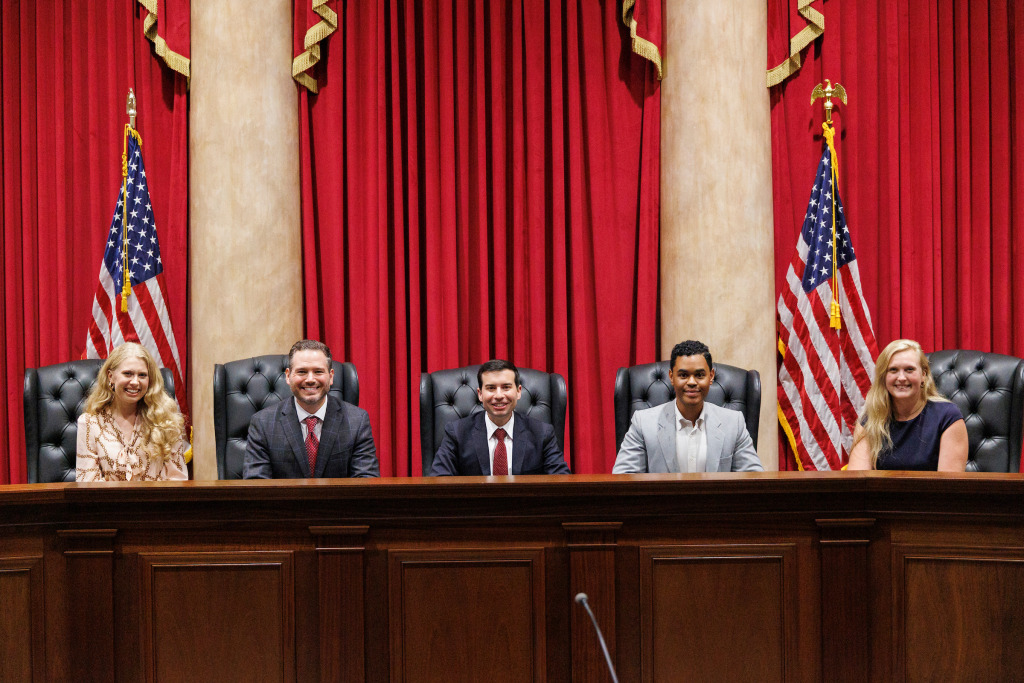
“It’s unbelievable the amount of time, resources, and effort that this school is putting into real workforce training,” Sonderling said. “Liberty serves as an example for other universities around the country to be able to look at as a model — to have students actually engage in studying careers that they want and getting those real-life skills.”

